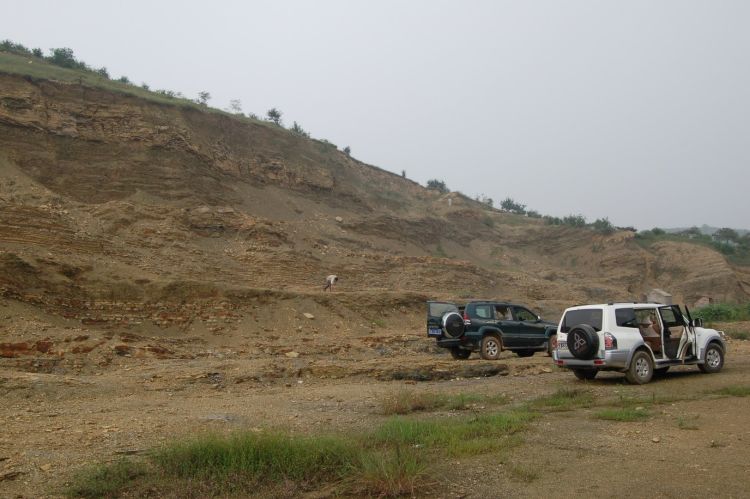Ocean changes almost starved life of oxygen

Chemical changes in the oceans more than 800 million years ago almost destroyed the oxygen-rich atmosphere that paved the way for complex life on Earth, new research suggests.
Then, as now, the planet had an “oxidizing” atmosphere driven by phytoplankton – the “plants” of the ocean – releasing oxygen during photosynthesis.
However, new research led by University of Leeds researchers Dr Romain Guilbaud (now at CNRS, Toulouse) and Professor Simon Poulton, which included an international team from University College London, the University of Exeter, and Nanjing Institute of Geology and Palaeontology, suggests ocean changes in the early Neoproterozoic era (from one billion to 800 million years ago) may have locked away phosphorus – a vital nutrient for life – limiting phytoplankton growth and oxygen release.
The study suggests the amount of phosphorus available remained “just sufficient” to support an oxidising atmosphere – preventing a return to the “reducing” (oxygen-poor) atmosphere that existed over a billion years earlier.
“Ocean chemistry in this period changed to become rich in iron,” said Dr Romain Guilbaud.
“We know ocean chemistry affects the cycling of phosphorus, but the impact on phosphorus availability at this time hadn’t been investigated until now. By analysing ocean sediments deposited one billion years ago, we found that iron minerals were very effective at removing phosphorus from the water.”
Phosphorus stimulates organic carbon production, and when this organic carbon is locked away in sediments at the bottom of the ocean, there is a net release of oxygen.
Professor Simon Poulton explained, “The lack of phosphorus for photosynthesis would have placed a major constraint on global oxygen production for a huge period of Earth’s history, plunging the Earth back into a low-oxygen state”
Despite reductions in photosynthesis and burial of organic carbon, the study suggests oxygen in the atmosphere remained “just enough” to maintain an oxidizing atmosphere.
“Our observations suggest significant variability in atmospheric oxygen concentrations across Earth’s ‘middle age’,” said Professor Tim Lenton of the University of Exeter.
He added: “One question about the emergence of complex life is why it didn’t happen sooner.
“Lack of oxygen and lack of nutrients are two possible reasons, and our study suggests both of these may have been the case in the early Neoproterozoic era.
“In fact, if phosphorus levels in the water had dropped any lower, it could have tipped the world back into a ‘reducing’ atmosphere suitable for bacteria but not for complex life.”
A return to a “reducing” atmosphere would have reversed the Great Oxidation Event, which occurred about 2.5 billion years ago, during which photosynthesis by cyanobacteria in the oceans introduced free oxygen to the atmosphere.
The study, which used samples from the Huainan Basin in north China, was funded by the Natural Environment Research Council (NERC) and the National Science Foundation of China.
The paper, published in the journal Nature Geoscience, is entitled: “Phosphorus-limited conditions in the early Neoproterozoic ocean maintained low levels of atmospheric oxygen.”
The paper is available at: https://www.nature.com/articles/s41561-020-0548-7




